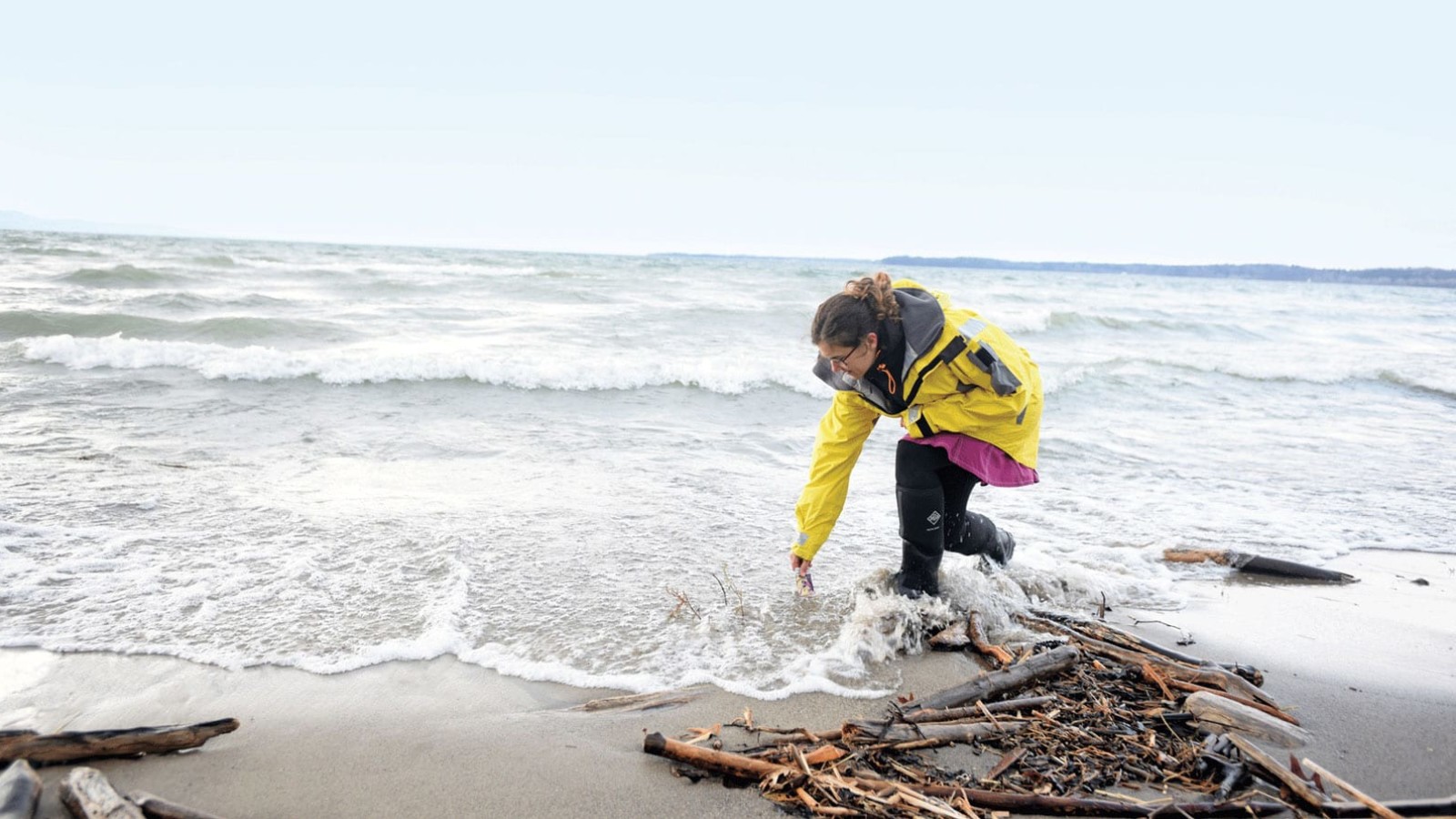Ocean conservationist, entrepreneur, and blue water sailor Rachael Miller ’88 delivered the keynote address at the 2020 Cum Laude Society induction ceremony on January 10, when Williston bestowed one of its highest academic honors on 12 members of the senior class. (See video of the entire ceremony and the speaker only, and photos of the event.)
Cum Laude Society Secretary and Language Department Chair Beatrice Cody introduced the 12 senior scholars:
- Eric Albanese
- Jason Albanese
- Brenna Banas
- Julia Farnham
- Rachel Goodman
- William Gunn
- Yi-Cheng (Ethan) Huang
- Jiakai (Jack) Long
- Keyu Lu
- Nathaniel Markey
- Anya Rozario
- Zeyu (Stephen) Wang
“We welcome these new members and invite them to live with scholarly purpose, intellectual passion, and personal integrity,” Cody said during the ceremony in the Phillips Stevens Chapel. Cum Laude President and Spanish teacher Karen Ram and Vice President and Academic Dean Greg Tuleja presented the inductees with a medal and certificate.
After the induction, Miller spoke about her work. It began, she said, after a period of uncertainty when her family wasn’t sure she would land on her feet. Fortunately, she found her calling. “My job is to protect the ocean,” she said. “I love my job. This was the reason I was put on this planet.”
Miller invented and markets the Cora Ball, a plastic device that runs in a washing machine and gathers plastic microfibers from clothing and keeps them from flowing into waterways, preventing microfiber pollution. She also captains the 60-foot sailboat American Promise, leading expeditions that conduct marine research for the nonprofit The Rozalia Project.
She gave Williston students five bits of advice:
1) Be present in the places you go
When she entered an Olympic sailing campaign (she didn’t make the Olympics) she met a gold medalist who told Miller, regretfully, that all she ever saw of the world were marinas. “Don’t let that happen to you,” she said. Now, wherever Miller travels for work, or to a conference, she makes sure to take at least a few hours to explore and experience the place she’s in, from France to New Zealand, from the Arctic Circle and Svalbard, Norway (“which makes Iceland seem tropical”), to Busan, South Korea, a village with “art in every corner.”
In other words, “be where you are.”
2) Lots of littles make a big
When trying to solve the problem of microfiber pollution, Miller invented the Cora Ball, a spherical piece of plastic about the size of an apple that catches fiber from our clothes (that are now mostly made of petroleum-based materials) and prevents the microscopic pieces from being washed into rivers and the ocean. The Cora Ball, when rated by a consumer agency, was about 26 percent effective at removing microfiber, Miller told the audience. “We would have gone to market even if it were only 10 percent effective,” she said, because, as an article that covered the study noted, if every one of the 6 million people in the city of Toronto, for example, used the Cora Ball and a similar product that filters wash water, we would save 6 trillion to 9 trillion pieces of microfiber from going down the drain. She extended the analogy to Williston students, who, while part of a small community, can make a big difference in the world.
3) Embrace the interdisciplinary
On her vessel, she used to recruit undergraduate science student volunteers. When she decided to branch out and bring in social scientists, artists, educators, the mother of commercial fishermen, all of different ages, stages in their careers, and geographic associations, she was able to tackle problems from multiple angles. It was what the MIT Environmental Solutions Initiative calls radical interdisciplinary work.
4) Prize action over hope
When you’re the captain of a ship and eight people are in your care, and it’s night, and you’re cozy and warm and dry in your bunk, and you hear a noise outside…you can hope it will go away. Or you can get up and check it out and get cold and wet and lose some sleep. When you get up and check out what’s going on, you are making a karmic deposit, Miller said. “Hope is necessary,” she added. “But hope cannot be a strategy. Action is a strategy.”
“At best,” she added, “you’ll save people’s lives.
5) Be prepared to answer when someone asks, “What do you need?”
As a nonprofit leader and an inventor, Miller found herself always raising money and pitching her product. One day she found herself on the other side of that equation, with a pair of inventors sharing a demo of their equipment prototype with her. She was impressed and when the demo was over, she asked them, “What do you need from me.” The two responded like deer in the headlights, with only an, “Um,” at the ready. Miller recognized that response, having fallen back on it herself at times, and realized that she needed always to have a specific and relevant answer for that question.
The lesson came just in time, because shortly after she learned it, she was asked by a funder what she needed for her plan to take soil, water, and air samples along the the 315-mile length of Hudson River, from the head at Lake Tear of the Clouds, New York, to the mouth at the Atlantic Ocean in New York harbor. She asked for $20,000 to do this work—and got it, later securing a grant from National Geographic to complete the project during the summer of 2019.

